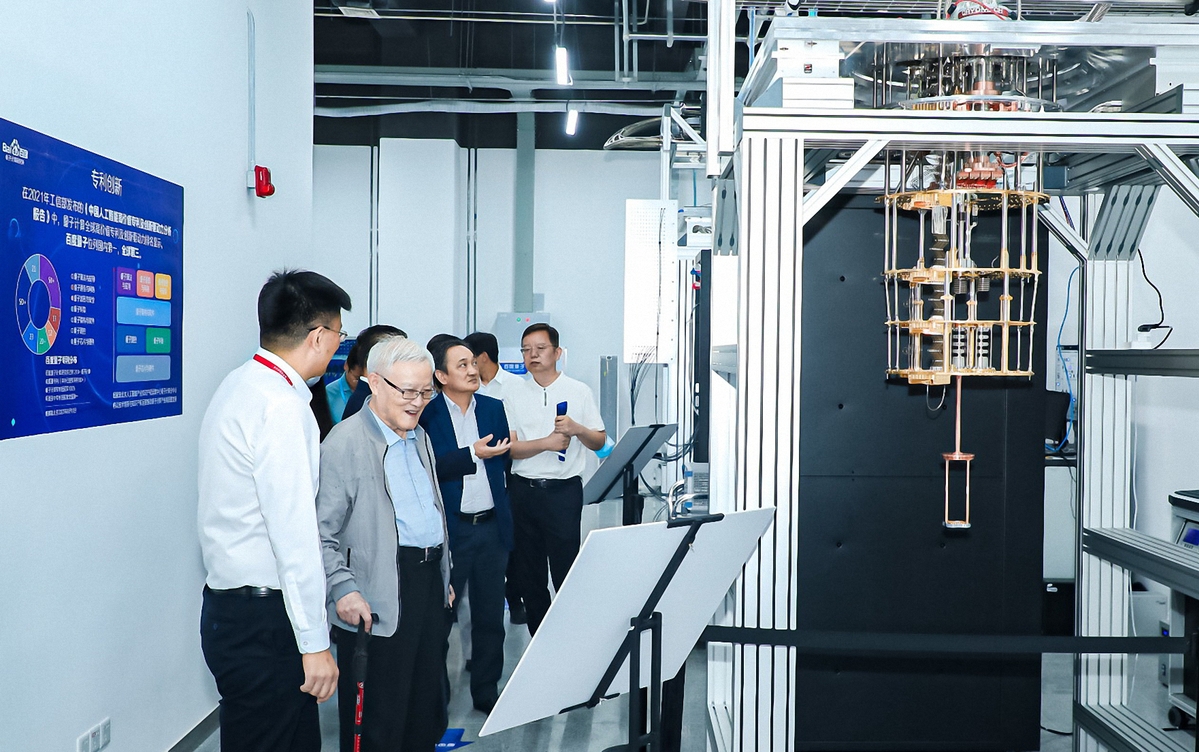Baidu ready to make next quantum leap


Chinese tech giant Baidu Inc on Thursday unveiled its first superconducting quantum computer and the world's first all-platform quantum hardware-software integration solution, a significant step in bolstering the long-awaited industrialization of quantum computing technology, industry experts said.
Quantum computing refers to the use of quantum mechanics to run calculations and it solves computation problems more efficiently than traditional computers. The new technology will speed up the computational power that drives many industries and affects everything from drug discoveries to how data is secured, experts added.
Baidu's industry-level superconducting quantum computer Qian Shi fully integrates hardware, software and applications, while its quantum solution Liang Xi offers versatile quantum services through cloud services and hardware access. Users can conveniently visit these quantum computational resources via mobile apps, PCs and the cloud, the company said.
"With Qian Shi and Liang Xi, users can create quantum algorithms and use quantum computing power without developing their own quantum hardware, control systems or programming languages," said Duan Runyao, director of the Institute for Quantum Computing at Baidu Research, at Quantum Create 2022, the company's first quantum developer conference.
Liu Yinchun, deputy secretary-general of Beijing's municipal government, said the newly launched superconducting quantum computer and solutions are conducive to lowering the application threshold of quantum computing and providing new paths for bolstering the development of the quantum computing industry.
Beijing will support cooperation among universities, research institutes and enterprises, promote quantum computing from laboratory to real-world applications, and enable the cutting-edge technology to empower various industries, Liu said.
China will speed up frontier science and technological layouts, such as quantum computing and quantum communication, during the 14th Five-Year Plan period (2021-25).
In recent years, the country has achieved a series of breakthroughs in quantum technology, including the world's first quantum communication satellite, which was developed by the University of Science and Technology of China, a 2,000-kilometer quantum communication line between Beijing and Shanghai, and the world's first optical quantum computing machine prototype.
Quantum computing will bring groundbreaking transformations in fields like artificial intelligence, computational biology, material simulation and financial technology, experts said.
In addition, tech companies such as Google, IBM and Microsoft are accelerating steps to develop quantum computing platforms. Chinese tech heavyweights including Alibaba, Baidu and Tencent have also tapped into the quantum computing sector.
According to a report from market consultancy International Data Corp, the scale of the global quantum computing industry is forecast to grow from $412 million in 2020 to $8.6 billion in 2027, representing a six-year compound annual growth rate of 50.9 percent.
"Quantum information technology mainly includes quantum computing, quantum communication and quantum precision measurement. The core lies in quantum computing," said Xiang Tao, an academician at the Chinese Academy of Sciences.
With the development of quantum computing, quantum technology will extend into every aspect of information processing, Xiang said, adding its industrialization will inject new vitality into the research of quantum computing and accelerate the development of quantum computers.




































